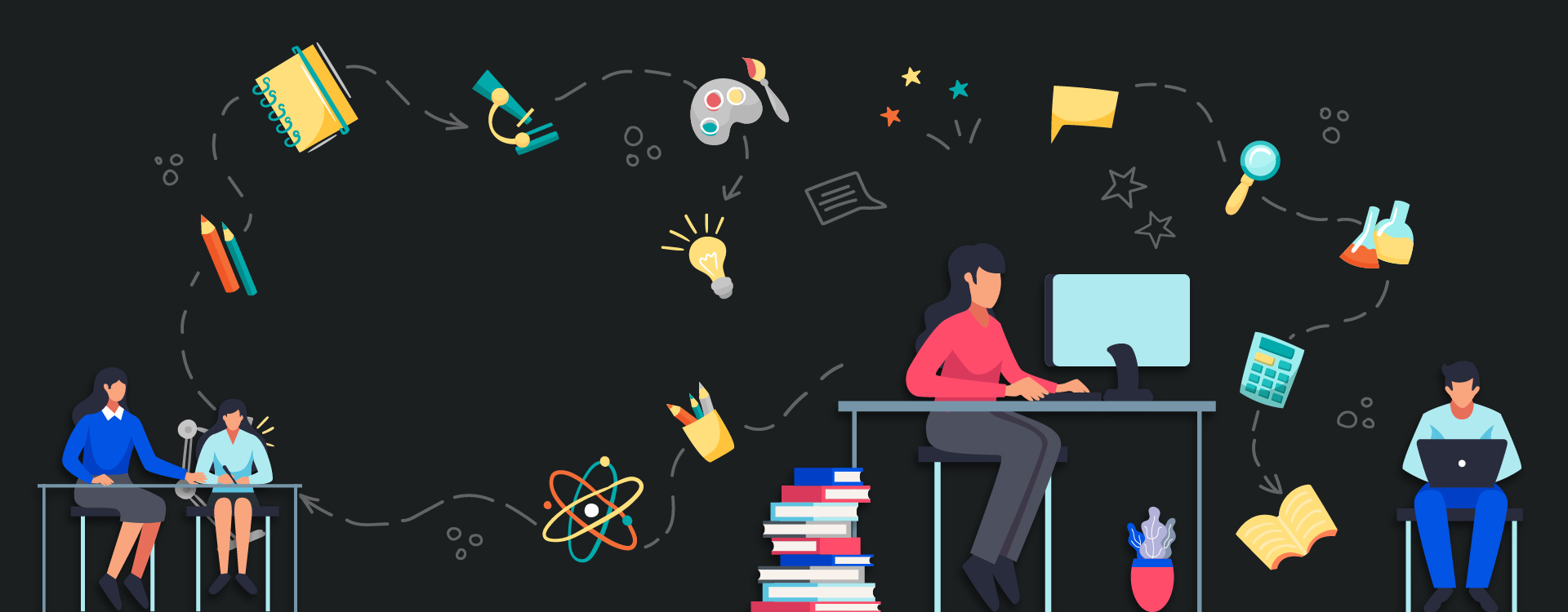Technology is rapidly changing the way we live and communicate. It has practically transformed every industry’s face in the economic sphere, be it coaching, education and training, or commerce, retail or manufacturing. During the COVID-19 pandemic, the positive aspects of technological advancements in all fields, especially in education and training, came to light as digital normalcy gained widespread popularity worldwide.
Educational skills help everyone overcome barriers to obtaining a quality education. And educational technology – Edtech – further assists students in expanding their imagination and understanding the world better.
‘‘
In the coming years, artificial intelligence and education will receive more ideas and applications. Artificial intelligence facilitates detailed analysis of students' test results.
New Face of Education and Training in India: Trends and Forecasts
A hybrid model of collaboration between start-ups and educational institutions
With the development of India’s educational technology sector, online education has become increasingly important in the cooperation policy of the Indian government. There are essential plans for collaboration between emerging and traditional institutions to access e-learning in different ways through central government like E-Vidya.
To meet the challenges of educational technology programs, many start-ups such as Toppr, upGrad, and Goprep have provided technical assistance to universities. Although e-learning focuses on the needs of primary, secondary education and higher education, given a large number of platforms for primary and secondary education in India, higher education and university courses will be a top priority in the coming years.
According to Finance Minister Nirmala Sitharaman, the Indian government have permitted the 100 best Indian universities to start automated online courses in 2020-2021. The University of Delhi launched its digital design on March 16, 2020, and is now based on the Google, Zoom video conferencing options and other features to deliver online courses to students.
Significant increase in online courses
Start-ups like Coursera and upGrad focus on compulsory education courses and help them integrate into traditional educational segments. For example, upGrad Live provides free services to all schools, colleges, educational institutions, non-governmental organisations, and government agencies for online exams and courses. So far, the company has organised over 50 classes and has enrolled over 45,000 students in India.
Coursera enables universities to provide students with access to more than 3,800 courses and 400 undergraduate majors listed on the platform. More than 6,000 applications have been received from Symbiosis Institute of Technology, World University of Design, BML Munjal University, National Rail and Transportation Institute, and NMAM Institute of Technology, and many others.
Mobile learning
The type of knowledge led by the traditional F2F (face to face) courses is changing its focus as per the new digital environment. Universities that required a low level of online activity in all systems now need a robust digital infrastructure through tools like websites, video-classes, and mobile applications to ensure students’ educational well-being. This trend is unlikely to disappear anytime soon, so the key to boosting the vast digital learning experience is in reconstructing F2F training in digital modes.
Faculty upskilling towards e-learning transformations
Start-ups offer online learning and teaching skills to universities, schools and other educational institutions where the need for support exceeds the inherent ability to transform online teaching experiences. Indian start-ups have already invested heavily in building their technology platform, hired teachers and integrated many students to boost the learning experience.
Edtech start-ups are working to create primary education and training services with traditional institutions. Whether it’s group training, individual problem-solving, or long-term support in planning learning, start-ups like Bada Business, Byju’s, and Unacademy help deliver quality resources and skills. They are helping to maintain student satisfaction, upskill teams and get courses online quickly, without compromising on quality.
Education and Training: Electronic Digital Assessment
Student assessment is an essential area of the education and training curriculum. The success of training depends mainly on the type of performance evaluation. Traditionally, student assessment has focused on theoretical tests where students are analysed based on theoretical knowledge.
But with digital assessment tools, students’ theoretical or descriptive answers in exams will be evaluated by technological tools in guidance of examiners. The success or failure in an exam will depend on understanding the principle rather than just churning out the paper’s rote information.
Personal Assessment and Analysis using Artificial Intelligence (AI)
Using an AI-based online testing system, new tech-start-ups are creating a personalised estimate of students’ grades. The current AI-based system’s technology provides useful functions for online exams, and it also offers valuable information on student performance, group analysis, and individual analysis of each subject.
In the coming years, artificial intelligence and education will receive more ideas and applications. Artificial intelligence facilitates detailed analysis of students’ test results. Through the evaluation of psychological tests, it is possible to develop artificial intelligence to analyse a candidate’s response.




